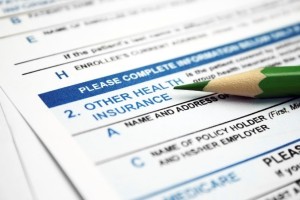While the District is a leader in providing health care coverage to low-income residents, there are new indications that some groups — such as those experiencing homelessness and residents with language barriers — face low rates of health coverage. This partly reflects challenges many residents face when applying for or renewing benefits, and it highlights the importance of creating a simplified, straightforward enrollment process for health coverage.
The Community Listening Project, an in-person survey of nearly 600 adults with incomes below 200 percent of the poverty level (or $23,760 for an individual), found that rates of health care coverage were noticeably lower for some groups than others. The survey shines a light on groups that are most likely to fall through the cracks, incl uding individuals who:
uding individuals who:
- Live outside;
- Have less than a 9th grade education;
- Live in rented rooms;
- Live alone;
- Or have had problems related to their immigrant status, such as language barriers.
The fact that some vulnerable individuals lack health care coverage is troubling, given that the District offers near-universal access for low-income residents. Virtually all adults in DC with incomes below 200 percent of poverty are eligible for health care either through DC’s Medicaid program or the Healthcare Alliance program.
The Community Listening Project’s results highlight the importance of outreach efforts so that uninsured individuals are made aware of the health insurance programs available to them and can enroll as quickly as possible.
The survey’s results reflect challenges that some residents face when applying for health insurance or in renewing their eligibility: long lines at DC’s social service centers, return trips because paperwork is incorrectly processed, and sometimes being told that they’re at the wrong service center despite the District’s “no wrong door” policy, according to a report from DCFPI and Legal Aid Society. These situations are especially challenging for vulnerable residents. The District has undertaken efforts to improve operations at its social service intake centers, which holds hope for reducing these problems in the future.
The burdens to get and maintain health care are especially great for those in the District’s Healthcare Alliance Program, which serves low-income residents not eligible for Medicaid, Medicare, or subsidies on DC Health Link — primarily undocumented immigrants. Alliance enrollees must do in-person interviews every six months at service centers to maintain benefits, and participation in the Alliance dropped sharply after this requirement was implemented in 2011. The District could reduce these problems by changing the six-month interview requirement to an annual review, as under Medicaid, and allow community health workers to assist with parts of the application and annual review. These strategies also could ease long lines and wait times at service centers.
The District has led the way in providing affordable insurance options for nearly all residents. To maintain and improve upon this progress, more work is needed to not only reach those who remain uninsured, but reduce the potential barriers that prevent them from enrolling, re-enrolling, and ultimately accessing care.
To print a copy of today’s blog, click here.
